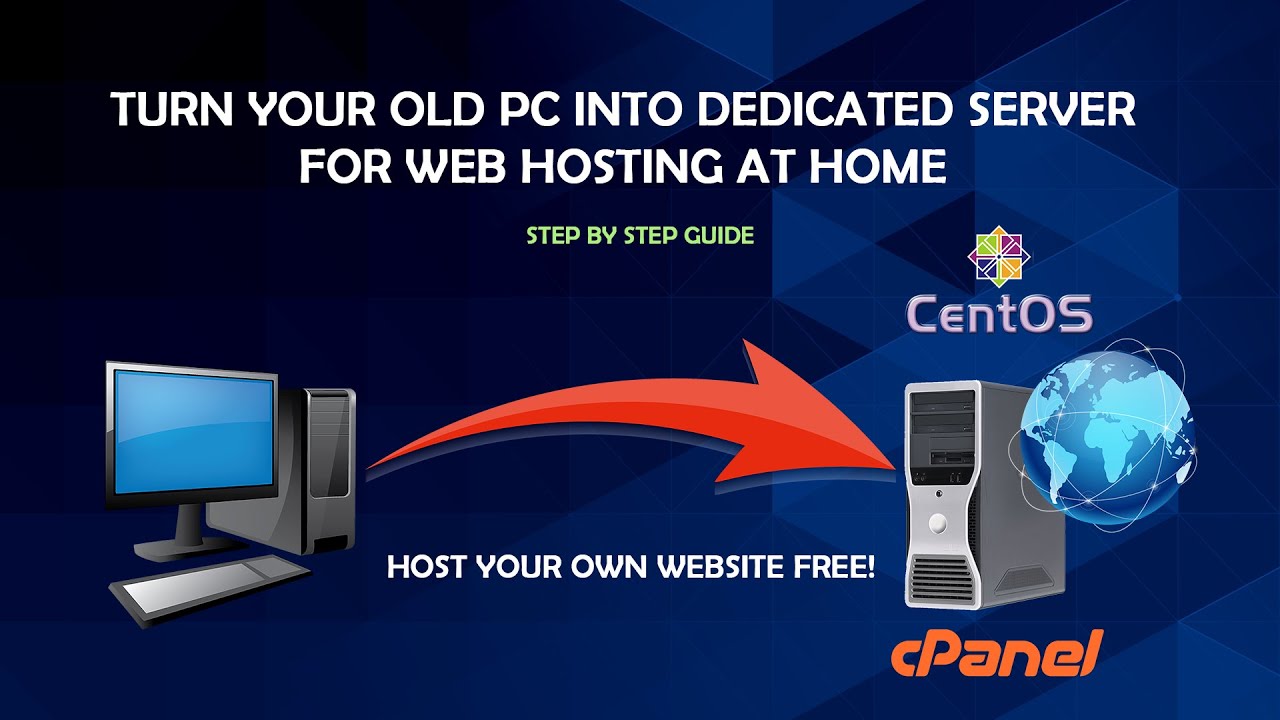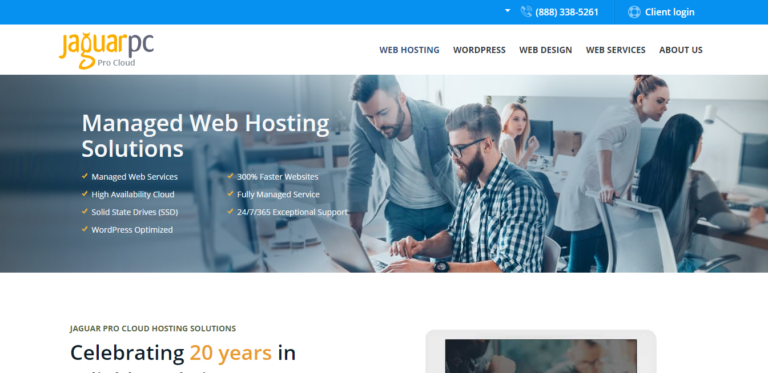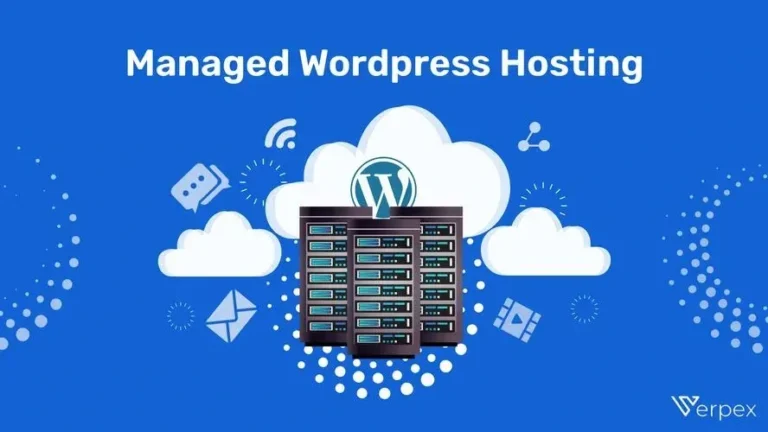How to Host a Website from Home: Step-by-Step Guide
Hosting a website from home might seem challenging. Yet, it’s a feasible and rewarding task.
With the right tools and knowledge, you can set up your website without relying on traditional hosting services. In this blog post, we will explore the essential steps to host a website from home. From understanding the technical requirements to configuring your server, we will cover it all. By the end, you will have a clear roadmap to get your website live from the comfort of your home. Hosting your site at home offers greater control and flexibility. Plus, it can be a cost-effective solution. Ready to dive in? Let’s get started on this exciting journey to home-hosted websites. For reliable and affordable web hosting, consider InterServer. Check out their services here.
Introduction To Hosting A Website From Home
Hosting a website from home can be an exciting and rewarding project. It allows you to have complete control over your website and its resources. This guide will provide you with the essential information needed to host your website from the comfort of your home. Let’s dive into what it means to host a website from home and the benefits of doing so.
What Does It Mean To Host A Website From Home?
Hosting a website from home means using your own computer or server to store the files and data of your website. Your computer serves as the server, handling all the requests from visitors to your site. This setup allows you to manage your website without relying on third-party hosting services. Below is a simple breakdown of the requirements:
| Requirement | Details |
|---|---|
| Computer or Server | A dedicated machine with reliable hardware. |
| Internet Connection | High-speed internet with a static IP address. |
| Software | Web server software like Apache or Nginx. |
| Security | Firewall and security measures to protect your server. |
Benefits Of Hosting Your Own Website
Hosting your website from home offers several benefits. Here are some of the key advantages:
- Cost Savings: No monthly fees for third-party hosting services.
- Control: Complete control over server configurations and resources.
- Customization: Ability to install any software or tools you need.
- Learning Experience: Gain valuable skills in server management and web hosting.
Hosting your website from home can be a great way to learn and save money. However, it also requires a good understanding of technical aspects and a reliable setup. Make sure to consider your needs and resources before starting this journey.

Credit: superuser.com
Prerequisites For Hosting A Website At Home
Hosting a website from home can be a rewarding experience. It gives you full control over your web server and reduces costs. But before you begin, certain prerequisites are essential. These will ensure your website runs smoothly and efficiently.
Reliable Internet Connection
A reliable internet connection is crucial for hosting a website at home. Your internet speed and bandwidth must handle the traffic that your website will receive. Here are some key considerations:
- High-speed broadband connection
- Unlimited data plan
- Stable upload and download speeds
Additionally, ensure your internet service provider (ISP) allows hosting. Some ISPs have restrictions on hosting websites from home.
Suitable Hardware Requirements
Having the right hardware is essential for hosting a website. Your computer or server should meet the following minimum requirements:
| Component | Minimum Requirement |
|---|---|
| Processor | Dual-core CPU |
| RAM | 4 GB |
| Storage | 100 GB HDD or SSD |
| Network | Ethernet or fast Wi-Fi |
Ensure your hardware can run continuously. Overheating and hardware failure can disrupt your website’s availability.
Necessary Software Tools
To host a website, you need specific software tools. These tools help manage, secure, and run your website efficiently. Here is a list of necessary software:
- Web Server Software: Apache or Nginx
- Database Management: MySQL or PostgreSQL
- Server-Side Language: PHP, Python, or Node.js
- Control Panel: cPanel or Plesk
- Security Tools: SSL certificates and firewalls
Installing these tools ensures your website runs smoothly and securely. Regularly update software to protect against vulnerabilities.
Step-by-step Guide To Hosting A Website From Home
Hosting a website from home can be a rewarding project. It allows you to have full control over your web presence. Below is a detailed guide to help you through the process.
Step 1: Choose And Register A Domain Name
The first step is to choose a domain name that represents your website. Use a domain registrar to check if the name is available. Once you find an available name, register it. Popular registrars include GoDaddy, Namecheap, and Bluehost.
Step 2: Set Up Your Server
To host a website from home, you’ll need a computer to act as your server. This can be an old desktop or a new machine dedicated to hosting. Install an operating system like Linux, Windows, or macOS. Ensure the computer has a stable internet connection and sufficient resources to handle web traffic.
Step 3: Install Web Server Software
Install web server software on your server. Popular choices include Apache, Nginx, and Microsoft IIS. For example, to install Apache on a Linux machine, use the following command:
sudo apt-get install apache2Follow the prompts to complete the installation. Ensure the web server software is running correctly.
Step 4: Configure Your Router And Firewall
Configure your router to direct internet traffic to your server. This involves setting up port forwarding for port 80 (HTTP) and port 443 (HTTPS). Access your router’s settings through its IP address, usually something like 192.168.1.1. Set up port forwarding rules to forward traffic to your server’s local IP address.
Additionally, configure your firewall to allow incoming traffic on these ports. This step is crucial for external users to access your website.
Step 5: Upload Your Website Files
With your server set up, it’s time to upload your website files. Use an FTP client like FileZilla to transfer your files to the web server directory. Typically, this directory is /var/www/html for Apache on Linux. Ensure your files are in the correct format and structure.
Step 6: Test Your Website
Finally, test your website to ensure everything is working properly. Open a web browser and enter your domain name. If configured correctly, your website should load. Check all links and features to ensure they function as expected.
If you encounter any issues, review your configurations and logs for errors.
By following these steps, you can successfully host a website from home. For a more professional hosting solution, consider services like InterServer Web Hosting. They offer various plans with features like unlimited storage, free SSL certificates, and 24/7 customer support.
Key Features And Tools For Home Web Hosting
Hosting a website from home offers a unique sense of control and customization. Understanding the key features and tools is essential. Let’s explore the main components needed for successful home web hosting.
Web Server Software Options
Choosing the right web server software is crucial for your website’s performance. Here are some popular choices:
- Apache: A widely-used open-source web server.
- Nginx: Known for its high performance and low resource usage.
- Lighttpd: Ideal for high-speed environments.
| Web Server | Pros | Cons |
|---|---|---|
| Apache | Highly customizable, strong community support | Heavier on resources |
| Nginx | High performance, low resource usage | Steeper learning curve |
| Lighttpd | Fast, efficient | Less popular, fewer modules |
Content Management Systems (cms)
A Content Management System (CMS) simplifies the management of your website. Popular CMS options include:
- WordPress: Easy to use, extensive plugins.
- Joomla: Flexible, suitable for complex sites.
- Drupal: Highly customizable, good for developers.
Choosing the right CMS depends on your website needs and technical skills.
Security Tools And Measures
Security is vital for hosting a website from home. Implement these security tools and measures:
- SSL Certificates: Encrypt data between the server and users. InterServer provides free SSL certificates.
- Firewalls: Protect your server from unauthorized access.
- Weekly Backups: Ensure data recovery in case of data loss. InterServer offers weekly backups.
Regularly update your software and monitor for vulnerabilities. This will help in maintaining a secure web hosting environment.
Troubleshooting Common Issues
Hosting a website from home can be a rewarding experience, but it comes with its share of challenges. Understanding how to troubleshoot common issues is crucial to ensure your site runs smoothly. In this section, we will address some of the most common problems you might face and how to resolve them.
Dealing With Downtime And Connectivity Issues
Downtime and connectivity issues can disrupt your website’s availability. Here are some steps to address them:
- Check your internet connection: Ensure your home network is stable and not facing any interruptions.
- Restart your router: Sometimes, a simple restart can resolve connectivity issues.
- Monitor your server: Use tools like UptimeRobot to monitor your server’s status.
- Contact your ISP: If issues persist, reach out to your Internet Service Provider.
These steps can help you quickly identify and resolve downtime and connectivity problems.
Managing Security Threats
Security is a critical concern for any website. Here are some tips to enhance your website’s security:
- Install a firewall: Protect your server from unauthorized access by using a firewall.
- Use strong passwords: Ensure all accounts have strong, unique passwords.
- Keep software updated: Regularly update your server software and applications to patch vulnerabilities.
- Enable SSL certificates: Encrypt data between your server and users with SSL certificates.
These measures can significantly reduce the risk of security threats.
Optimizing Performance
Optimizing your website’s performance ensures a smooth user experience. Follow these tips to enhance performance:
- Optimize images: Compress images to reduce load times.
- Use caching: Implement caching to speed up your website.
- Minimize plugins: Only use essential plugins to avoid slowing down your site.
- Monitor performance: Use tools like Google PageSpeed Insights to identify areas for improvement.
By implementing these optimizations, you can provide a better experience for your users.

Credit: www.youtube.com
Pros And Cons Of Hosting A Website From Home
Hosting a website from home can be an appealing option for many. It offers control and potentially lower costs. But it also has challenges to consider. Below, we delve into the advantages and drawbacks of home web hosting.
Advantages Of Home Web Hosting
Home web hosting provides several benefits worth considering:
- Cost Savings: You can save on hosting fees by using your existing internet connection and hardware.
- Full Control: You have complete control over your server. This includes software configurations and security measures.
- Learning Opportunity: Hosting from home offers hands-on experience with server management and web technologies.
Challenges And Potential Drawbacks
While there are benefits, hosting a website from home comes with its own set of challenges:
- Reliability: Home internet connections may not be as reliable as professional hosting services. This can lead to downtime.
- Security Risks: Home networks are usually less secure. This increases the risk of cyber attacks.
- Technical Expertise: Managing a web server requires technical knowledge. This includes configuring software and troubleshooting issues.
- Bandwidth Limitations: Home internet plans often have limited bandwidth. Heavy traffic can slow down your site.
For a more reliable and secure hosting solution, consider using a professional service like InterServer. They offer a variety of hosting options, including shared hosting, VPS hosting, and dedicated servers.
For more information, visit their website: InterServer Web Hosting.
Who Should Consider Hosting A Website From Home?
Hosting a website from home can be a rewarding experience. It can also save money and offer greater control over your web presence. But not everyone should take this route. Let’s explore who might benefit the most.
Ideal Users And Scenarios
Hosting a website from home is ideal for tech-savvy individuals. If you enjoy learning and experimenting with new technologies, this option might suit you. Here are some scenarios where home hosting makes sense:
- Small Personal Projects: If you have a small, non-commercial website, home hosting can be cost-effective.
- Learning Purposes: Aspiring web developers can gain valuable hands-on experience.
- Control and Customization: Home hosting allows full control over server settings and configurations.
| Scenario | Benefit |
|---|---|
| Personal Blog | Cost Savings |
| Development Testing | Learning Opportunity |
| Custom Projects | Full Control |
Alternatives To Home Web Hosting
For many, home hosting might not be the best option. InterServer offers various hosting services that can meet different needs. Their plans provide reliable performance and enhanced security without the hassle of managing a server at home.
- Shared Hosting: Starting at $2.50 per month, this is great for small websites.
- VPS Hosting: Starting at $6.00 per month, offers more resources and control.
- Dedicated Servers: Starting at $49.00 per month, ideal for large, resource-intensive websites.
InterServer also provides free SSL certificates, weekly backups, and a 99.9% uptime guarantee. These features ensure your website remains secure and online. Plus, their 24/7 customer support is always available to assist with any issues.
For more details, visit InterServer Web Hosting.

Credit: www.hostingadvice.com
Frequently Asked Questions
What Do I Need To Host A Website At Home?
To host a website from home, you need a computer, a stable internet connection, a domain name, and web hosting software.
Is It Safe To Host A Website From Home?
Hosting a website from home can be risky. Proper security measures like firewalls and regular updates are essential to protect your data.
How Do I Set Up My Home Server?
To set up your home server, install web server software like Apache or Nginx. Configure your router to allow web traffic.
What Are The Costs Of Hosting A Website From Home?
The costs include electricity, internet service, and potential hardware upgrades. These may be lower than commercial web hosting services.
Conclusion
Hosting a website from home can be rewarding and educational. You can control your server setup and costs. Remember, reliable web hosting is crucial. Consider professional options like InterServer. They offer flexible, affordable plans with excellent features. For more information on InterServer, visit their website here. Start your web hosting journey today. With the right knowledge, you can achieve great results. Happy hosting!





